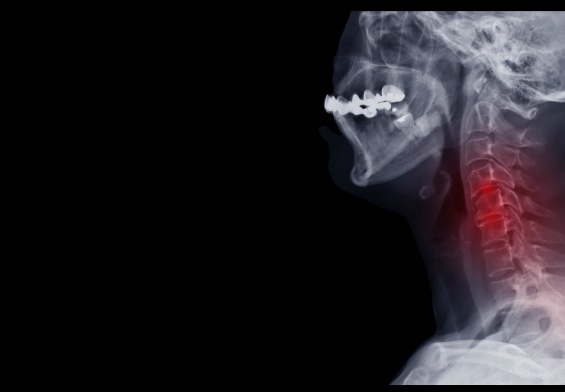The decision to undergo cosmetic procedures is both personal and profound. It’s a journey that promises transformation, rejuvenation, and newfound confidence. However, the path to achieving these desired outcomes is intricately tied to the expertise and qualifications of the cosmetic surgeon you choose. Making the right choice is not just about enhancing your physical appearance; it’s about ensuring safety, trust, and long-lasting satisfaction.
Cosmetic surgery, unlike other medical procedures, holds a unique intersection of art and science. The surgeon must possess not only the technical skills and knowledge but also an artistic eye and a deep understanding of human aesthetics. This delicate balance is what differentiates a satisfactory procedure from a truly transformative one.
In today’s digital age, where information is abundant, and advertisements are omnipresent, it can be overwhelming to sift through the myriad of options available. Every surgeon claims to be the best, and every clinic promises transformative results. But beyond the glossy photos and persuasive testimonials, how do you discern the genuine from the superficial?
The key lies in understanding the nuances of the field, recognizing the importance of board certification, and valuing the power of authentic patient testimonials and before-and-after galleries. As you embark on this journey, it’s essential to arm yourself with knowledge, ask the right questions, and prioritize your well-being above all.
Board Certification is Essential
In the realm of medicine, board certification stands as a hallmark of a practitioner’s dedication, expertise, and commitment to the highest standards of patient care. When it comes to cosmetic surgery, this certification becomes even more crucial, given the intricate blend of technical precision and artistic vision the field demands.
But what exactly does board certification entail? At its core, it signifies that a surgeon has undergone rigorous training, passed stringent examinations, and demonstrated proficiency in their specialty. It’s a testament to their dedication to continuous learning and staying updated with the latest advancements in the field.
For cosmetic surgery, there are specific boards, such as the American Board of Cosmetic Surgery (ABCS) and the American Board of Plastic Surgery, that oversee the certification process. These boards ensure that surgeons possess the necessary skills, knowledge, and ethical standards to practice cosmetic surgery safely and effectively.
However, it’s essential to understand that not all board certifications are created equal. While many medical professionals might claim to be “board-certified,” the specialty in which they are certified matters immensely. For instance, a surgeon might be board-certified in dermatology or gynecology but might not have the specialized training required for complex cosmetic procedures.
The ABCS, for example, exclusively focuses on cosmetic surgery, ensuring that its certified members are well-versed in a wide range of cosmetic procedures, from facelifts to liposuction. This specialization ensures that the surgeon is not only knowledgeable about the procedure but also understands the nuances and intricacies that can make a significant difference in the outcome.
While board certification is a vital first step in choosing a cosmetic surgeon, it’s equally important to delve deeper and understand the specifics of the certification. By doing so, you ensure that you’re placing your trust in a surgeon who has the right training, experience, and expertise to help you achieve your aesthetic goals.
Experience Matters
In the world of cosmetic surgery, experience is more than just a number. It’s a reflection of a surgeon’s journey through countless procedures, diverse patient profiles, and varied challenges. Each surgery performed, each outcome achieved, and each challenge overcome adds to the surgeon’s repertoire of skills, knowledge, and insights.
When considering cosmetic surgery, it’s not just about finding a surgeon who has been in the field for many years. It’s about finding someone who has consistently demonstrated excellence in the specific procedure you’re interested in. Different cosmetic procedures, from rhinoplasty to breast augmentation, demand distinct skill sets. The intricacies involved in reshaping the nose, with its complex structures of bone and cartilage, are vastly different from the nuances of enhancing the soft tissue of the breasts.
So, how do you gauge a surgeon’s experience in your desired procedure? Start by asking pointed questions. Inquire about their training in that specific procedure, the number of times they’ve performed it, and the outcomes they’ve achieved. A seasoned surgeon will not only provide this information but will also share insights into the evolution of techniques and technologies in that area.
Before and after photos serve as a visual testament to a surgeon’s work. By examining these images, especially of patients with similar features and goals as yours, you can gauge the surgeon’s aesthetic style and technical prowess. These photos offer a glimpse into the surgeon’s ability to tailor the procedure to individual needs, ensuring results that look natural and harmonious.
Patient testimonials and reviews can also shed light on the surgeon’s expertise. While photos showcase the physical outcomes, testimonials delve into the patient’s journey – from consultation to recovery. They highlight the surgeon’s approach, their ability to set realistic expectations, and their commitment to patient care.
Aesthetic Sense Should Align with Yours
Cosmetic surgery is as much an art as it is a science. While technical proficiency is crucial, the surgeon’s aesthetic vision plays an equally significant role in determining the outcome of the procedure. After all, beauty is deeply personal and varies from one individual to another. What one person perceives as the epitome of beauty might differ vastly from another’s viewpoint.
When considering cosmetic surgery, it’s essential to find a surgeon whose aesthetic sensibilities resonate with your own. This alignment ensures that the surgeon’s interpretation of beauty complements your personal ideals and aspirations.
So, how do you determine if a surgeon’s aesthetic sense aligns with yours?
- Before and After Photos: One of the most effective ways to gauge a surgeon’s aesthetic style is by examining their portfolio of before and after photos. These images offer a visual representation of the surgeon’s work and provide insights into their approach to various procedures. Look for patients with similar features and goals as yours. Assess the results – do they appear natural? Do they enhance the individual’s unique features while maintaining harmony and balance?
- Consultation Discussions: The consultation phase is a golden opportunity to understand the surgeon’s aesthetic philosophy. Discuss your goals and listen to their recommendations. Do they suggest subtle enhancements or dramatic transformations? Their suggestions will provide a glimpse into their aesthetic preferences.
- Patient Testimonials: While before and after photos showcase the physical results, patient testimonials provide insights into the overall experience. Did the patients feel that the surgeon understood their aesthetic goals? Were they satisfied with the results in terms of their personal beauty standards?
- Artistic Inclinations: Some surgeons have backgrounds in art or have pursued hobbies that require an artistic eye, such as sculpture or painting. While this isn’t a prerequisite for a successful cosmetic surgeon, it can offer additional insights into their appreciation for aesthetics.
Remember, cosmetic surgery is a collaboration between the patient and the surgeon. It’s a journey where both parties come together to enhance and celebrate individual beauty. By ensuring that your aesthetic sensibilities align with those of your surgeon, you pave the way for results that not only enhance your physical appearance but also uplift your spirit and confidence.
Comfort and Trust are Key
Embarking on a cosmetic surgery journey is a deeply personal decision, one that often comes with a mix of excitement, anticipation, and apprehension. While the technical and aesthetic aspects of choosing a surgeon are undeniably important, the emotional and interpersonal facets are equally crucial. At the heart of this journey lies the relationship between you and your surgeon—a bond built on trust, understanding, and mutual respect.
- Open Communication: The foundation of any strong relationship is open and honest communication. Your surgeon should be someone with whom you can discuss your desires, fears, and expectations without hesitation. They should be willing to listen intently, answer your questions comprehensively, and address any concerns you might have. A surgeon who takes the time to understand your unique perspective and offers clarity is one who values the importance of communication.
- Empathy and Understanding: Beyond the clinical and procedural aspects, a good cosmetic surgeon recognizes the emotional nuances associated with the decision to undergo surgery. They should demonstrate empathy, understanding the myriad of emotions you might be experiencing. This emotional intelligence ensures that you feel supported and validated throughout the process.
- Transparency: Trust is built on transparency. Your surgeon should be forthright about the procedure, potential risks, expected outcomes, and recovery process. They should provide clear information about costs, post-operative care, and any other relevant details. This transparency ensures that you are well-informed and can make decisions with confidence.
- Credentials and Credibility: While interpersonal skills are vital, they should be complemented by credible credentials. Ensure that your surgeon has the necessary qualifications, board certifications, and affiliations with reputable medical organizations. This combination of interpersonal skills and professional credibility fosters trust.
- Personal Comfort: At the end of the day, trust your instincts. Do you feel at ease when speaking with the surgeon? Do you feel that they genuinely care about your well-being and are invested in helping you achieve your goals? Your personal comfort is a significant indicator of whether the surgeon is the right fit for you.
Overall, the journey of cosmetic surgery is as much emotional as it is physical. By ensuring that you share a bond of trust and comfort with your surgeon, you pave the way for a positive experience and satisfying results.
Safety First
The allure of cosmetic surgery often lies in the promise of transformation and rejuvenation. However, beneath the surface of these aspirations, the paramount concern should always be safety. Cosmetic surgery, like any medical procedure, comes with inherent risks. Ensuring that these risks are minimized and that you are in the safest hands possible is crucial.
- Accredited Facilities: The environment in which the surgery is performed plays a significant role in ensuring safety. Opt for surgeons who operate in accredited or state-licensed facilities. These facilities adhere to strict safety standards, undergo regular inspections, and are equipped with the latest medical equipment. Accreditation ensures that the facility meets or exceeds standards set for patient safety, surgeon credentials, and staff qualifications.
- Anesthesia Administration: Anesthesia is a critical component of most surgical procedures. The qualifications of the individual administering the anesthesia can significantly impact safety. Ideally, anesthesia should be given by a Board Certified Anesthesiologist or a Certified Registered Nurse Anesthetist (CRNA). Their expertise ensures that anesthesia is administered safely and that any potential complications are promptly addressed.
- Surgeon’s Training and Expertise: While this might seem obvious, it’s worth reiterating. Ensure that your surgeon has undergone extensive training in the specific procedure you’re considering. Their expertise not only guarantees better aesthetic results but also ensures that the surgery is performed safely, minimizing potential complications.
- Post-Operative Care: Safety doesn’t end once the surgery is completed. The post-operative phase is equally crucial. A dedicated surgeon will provide comprehensive aftercare instructions, be available for follow-up appointments, and address any concerns that might arise during the recovery process. This commitment to post-operative care ensures that the recovery is smooth and any potential complications are swiftly managed.
- Patient Education: A well-informed patient is an empowered patient. Your surgeon should prioritize educating you about the procedure, potential risks, and safety precautions. This education ensures that you can make informed decisions, adhere to pre and post-operative guidelines, and actively participate in ensuring your safety.
In essence, while the allure of cosmetic surgery lies in the transformative outcomes, the journey should be underpinned by an unwavering commitment to safety. By prioritizing safety at every step, from the choice of facility to post-operative care, you ensure that your cosmetic surgery journey is not only transformative but also safe and secure.
Resources:
American Board of Cosmetic Surgery




